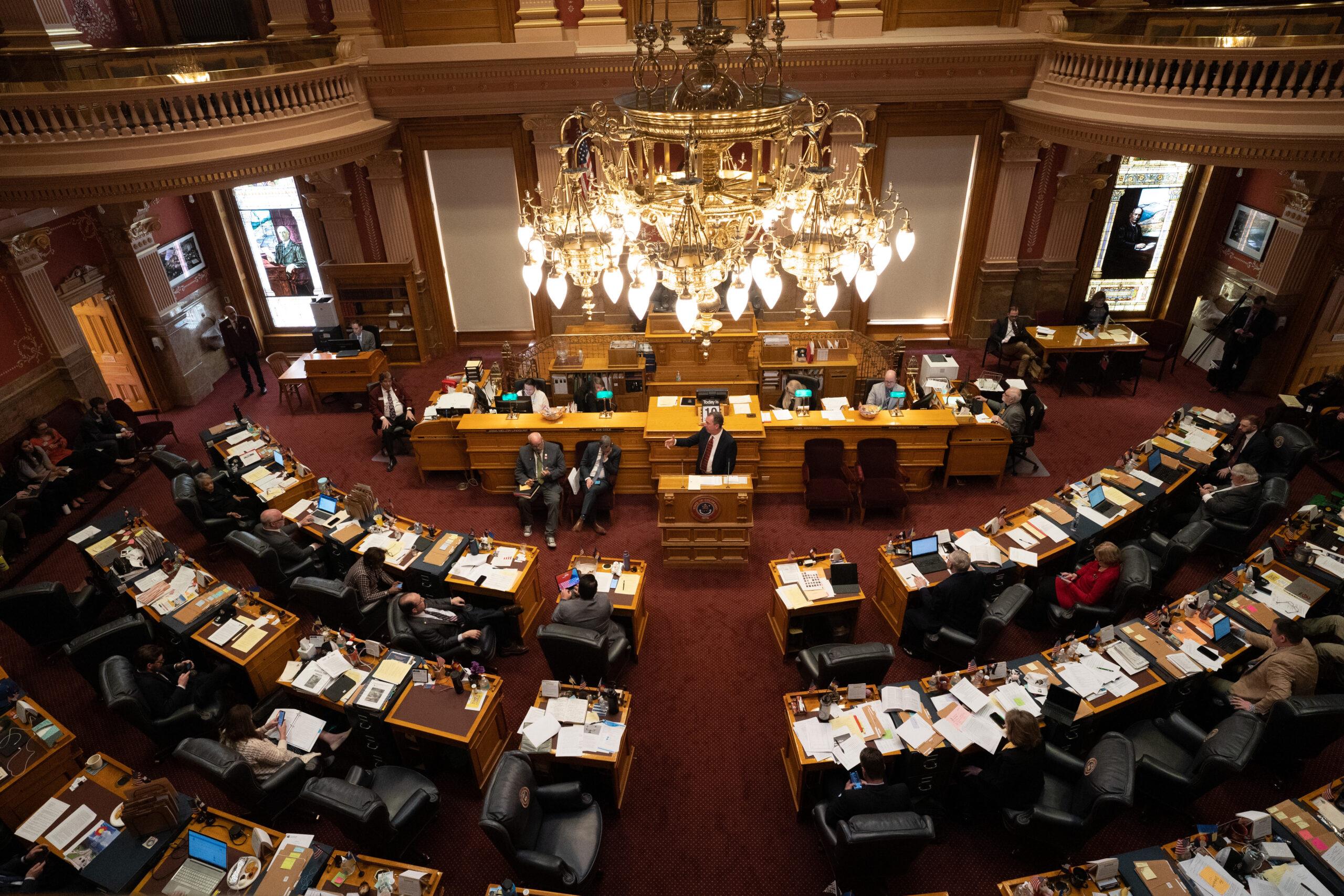
A bill that would make it easier to sue the firearms industry is close to crossing the finish line, but it will get there with some potentially significant last-minute changes.
The bill, SB23-168, had passed both chambers of the legislature with relatively few changes. But then, late last week, a bipartisan committee of lawmakers agreed to delete several passages, partially at the request of Gov. Jared Polis.
The bill, overall, is meant to make it easier for people to sue firearm manufacturers, who are currently shielded from civil liability in a way that most industries are not.
The amendment narrows that change, reducing and simplifying the list of reasons that people can sue a gun company. The bill’s sponsors — all Democrats — unanimously agreed to the revisions.
What actually changed?
The original bill created a new “code of conduct” for firearms makers and sellers and allowed people to sue when the industry violates that code. The amendment eliminates that code of conduct and instead holds the industry responsible only for upholding existing laws.
For example, the original version of the bill declares that “firearm industry members have a lawful duty and responsibility to take reasonable precautions to prevent foreseeable risks to life, health, safety and well-being of the citizens of Colorado.”
The original bill also outlined a list of specific responsibilities for the industry, such as thwarting “straw” purchases and preventing sales to people “at substantial risk” of hurting themselves or illegally hurting others. It also said that guns can’t be marketed or sold in a way that targets minors or that “promotes” the use of illegal aftermarket modifications.
Those responsibilities are all struck from the amended bill. Instead, it now says that companies can be sued if they fail to “follow Colorado law.” It specifically refers to the Colorado Consumer Protection Act, which prohibits deceptive and unfair trade practices, as well as the state’s laws on firearm sales.
The amended bill also now says that the industry is only liable for a “knowing” violation of the laws, which mirrors federal law.
With the changes, the bill doesn't go as far as similar laws in states like California, which created a specific new code of conduct for the firearm industry.
State Sen. Sonya Jaquez Lewis, a sponsor, said that she wasn’t sure exactly how the revisions would affect potential lawsuits, but she was confident that the bill is still a significant step. Besides allowing for lawsuits generally, the bill also eliminates existing language in state law that can force plaintiffs to pay steep attorney costs for firearm industry defendants if they lose.
“It actually gives them their ability to go to civil court,” she said. “Now we’ve actually created that lane.”
State Sen. Chris Kolker, another sponsor, said that even with the narrower language, plaintiffs should still be able to make strong cases. For example, he said, a plaintiff could argue that a company had engaged in unfair business practices by marketing to underage gun buyers. (Another law going through this session will raise the age to purchase all firearms to 21 years old.)
“If you market it under 21, I think that's a violation of the Consumer Protection Act, unfair business practices. So I think this is all in there,” he said.
Republicans claimed the change as a victory, with a spokesman for House GOP leadership saying the bill had been “gutted.” But the sponsors contend that it will still meet its goal of holding the industry responsible if it facilitates the misuse of guns.
Why did they change the bill?
The change came at essentially the last possible step in the process, as a conference committee met to try to agree on differences between the House and Senate versions of the bill.
The conference committee, which included the bill’s sponsors as well as Republicans from both chambers, introduced an amendment that hadn’t been formally debated in either chamber. The bill, and the conference committee report on its changes, now goes back to the House and Senate for final approval.
There was at least one big motivation to make the change: Polis’ office wanted it.
“The Governor and his team worked with the legislature to make changes to the bill to ensure it would be more effectively implemented and help protect more Coloradans from gun violence,” wrote Conor Cahill, a Polis spokesman, in an email to CPR. “As written, the bill repeals the state version of PLCAA [the federal law limiting firearm industry liability] and holds those in the gun industry accountable for keeping Coloradans safe while avoiding unintended consequences. He appreciates the General Assembly’s dedication to pass a conference report unanimously.”
The governor’s office didn’t provide details of what it meant by “unintended consequences,” but in a follow-up statement, Cahill said: “The bill sets forth clear expectations to follow and allows civil actions for violations of certain state laws and he will sign the bill. “
The conference committee included the four Democratic sponsors — state Sens. Jaquez Lewis and Kolker, and state Reps. Javier Mabrey and Jennifer Parenti — as well as two Republican members, state Rep. Rick Taggart and state Sen. Bob Gardner. All six voted unanimously to make the change.









